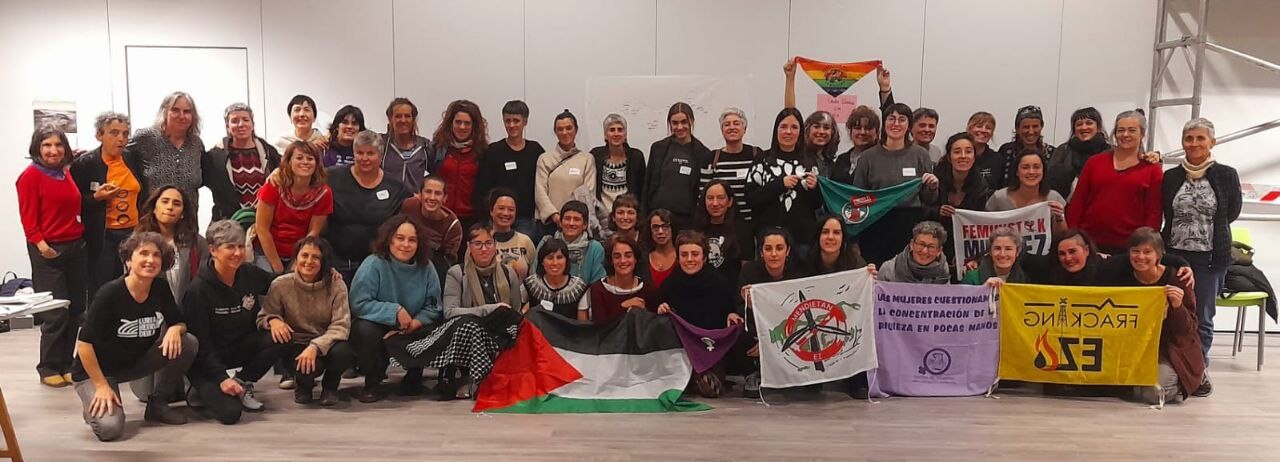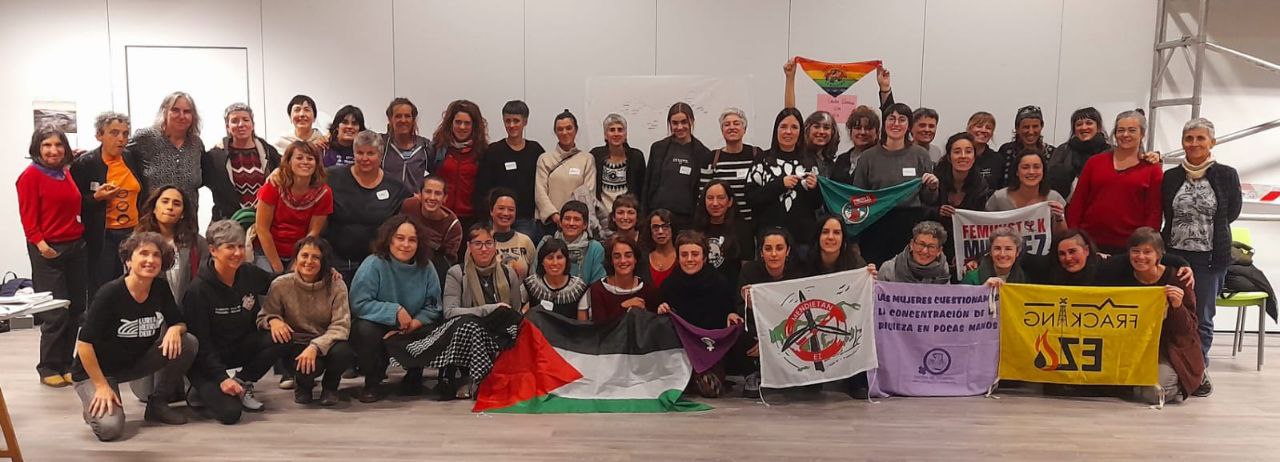Feminist Growth
- For us, ecofeminism is not a theory developed by theorists and writers. It is the knowledge we have built through participation in a social collective and the relationship with other collectives and organizations. And because we worry that collective construction will become invisible, we want to visualize the trajectory and learning of Feminist Degrowth.

Like many other ecofeminist struggles (indigenous or peasant), this collective emerged in a mixed social movement, Degrowth. This was initiated in 2009 around anti-capitalist proposals and its initial speech was merely an ecologist, which called into question the nonsense of limitless growth. By 2012-13, Desazkundea articulated dozens of people in Bilbao and Vitoria-Gasteiz and organized into groups such as the social currency, the popular garden, the Spatial Planning Guidelines, labor and basic income, food, education and the Global South, etc. One of those working groups was Feminisms Desazkundea, who studied and lived how feminism and growth interact. Over time, Degrowth ceased to function as a social movement, and as the only working group that remained active was Feminisms, it became Feminist Degrowth. Recently, Feminist Degrowth has also decided to dissolve itself by self-care and coherence.
In this collective process of over ten years we have been able to extract some collective learning. In relation to the discourse, at the internal and network level, we have reflected with other agents (Association of Household Workers of Bizkaia, Non-Domesticated Workers, Women of the World Babel, Mugarik Gabe, Houses of Women, Degrowth and Network for Good Life...) through interviews, workshops and different processes, and we have written in These processes have allowed us, on the one hand, to turn to other struggles that are articulated with ecofeminism: decolonialism, antispecialism, food sovereignty, LGTBIQA+.. and have been complicating our discourse and our praxis. On the other hand, in our bodies and those in our immediate environment we have experienced how difficult it is for the logics of projects, such as those of NGOs or the university, to value, recognize and legitimize the rhythms, knowledge and protagonism of social collectives.
Internally, we have understood and practiced that degrowth means caring. For example, we kept the meetings with the monitoring tool of the groups we were able to name later; the group adapted to the rhythms, life projects and care situations of the group members; we collected money from the workshops offered, to attend to the diversity of our economic situations and redistribute it to other social groups, etc. Over time we have realized that we have naturalized collective care related to heat, sweetness and listening that it is not so easy for us to find in other spaces. In addition, the links we have created collectively have exceeded the time limits of the group itself, as is the case in this article. We hope that this process, in addition to us, has served for other struggles and experiences, and that it has served to consolidate the decline, certainly eco-feminist.

















